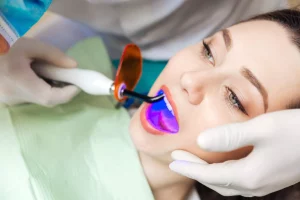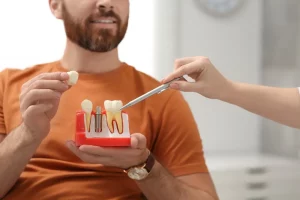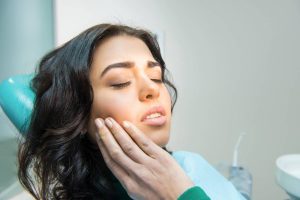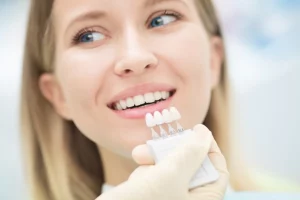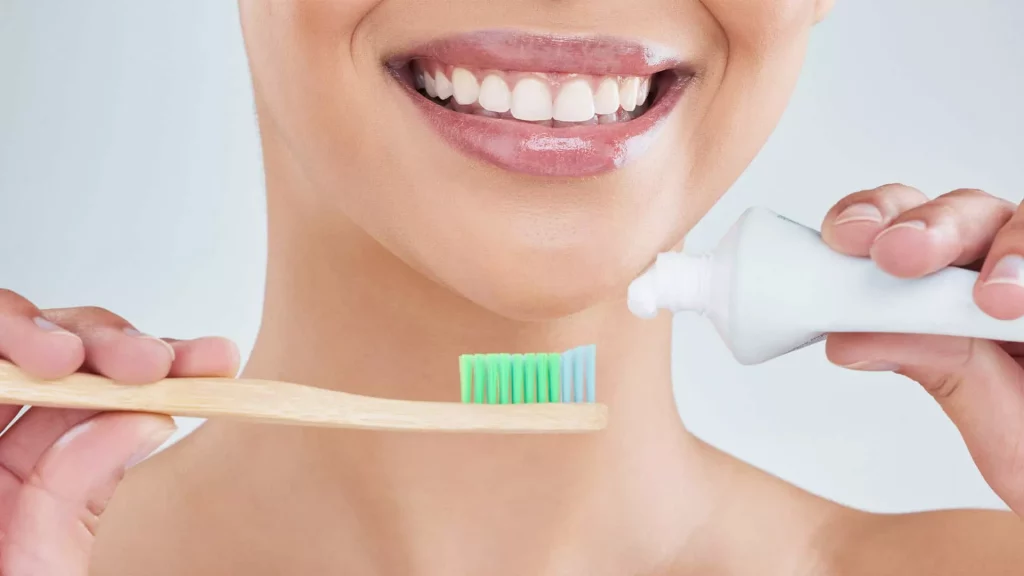Last Updated on: 13th November 2025, 06:33 am
Arthritis and teeth are linked in two ways: inflammation and hands/jaw limitations. Arthritis increases the risk of gum disease and dry mouth. Pain or stiffness in the hands and jaw can make brushing, flossing, or chewing hard, and that may lead to dental problems over time.
Living with arthritis isn’t easy. Most people think it only affects the hands or knees. The truth is, arthritis and teeth are connected too. This condition brings daily pain, swelling, and stiffness, and it can also hurt your mouth.
When you have arthritis, it can be harder to brush or floss your teeth. Plus, inflammation spreads in your body, including your gums, making dental problems more likely.
In this article, you’ll see how arthritis and teeth are linked and learn simple ways to keep your mouth healthy, even when your joints make things difficult.
How does arthritis affect your oral health?

Arthritis causes inflammation, dry mouth, and jaw pain. This makes dental problems more likely. Let’s understand each one of these problems.
It causes inflammation
Arthritis, especially the rheumatoid arthritis, is an illness known for swelling and inflammation. Gum disease is also caused by inflammation.
If you have arthritis, you are more likely to get gum disease. And if you already have gum disease, it can make your arthritis worse. They affect each other.
It makes your mouth dry
Many arthritis medicines, like steroids, can make your mouth dry. This happens because they reduce saliva.
Saliva helps clean your mouth and protect your teeth. Without enough saliva:
- food and bacteria stick to your teeth
- cavities and infections happen more easily
- your mouth can feel sore or burn
Some people with arthritis also have Sjögren’s Syndrome, which makes your eyes and mouth very dry. It can be uncomfortable and cause tooth problems.
It affects your jaw
Arthritis can hurt the joint in your jaw. This is called the TMJ (temporomandibular joint).
When this joint has inflammation, you may feel:
- pain or tenderness in your jaw, face, or neck
- clicking or popping sounds when opening or closing your mouth
- trouble opening your mouth wide
- jaw locking (getting stuck)
- difficulty chewing or biting
How does arthritis make dental care more challenging?
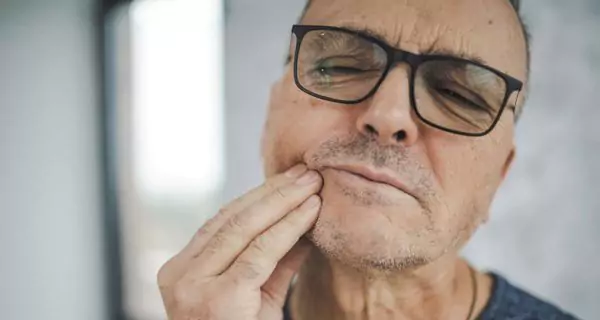
Arthritis makes brushing and flossing hard because of pain and stiffness.
Just imagine trying to clean your teeth, but:
- you can’t open your mouth properly
- you feel pain in your jaw
- your hands hurt when holding a toothbrush
It feels like trying to do a very difficult and painful sport every day.
Why is it so hard?
When you have arthritis:
- your hands or wrists may hurt, making it hard to hold and move your toothbrush or floss.
- your jaw can feel stiff or painful, so opening your mouth wide enough to clean your teeth is difficult.
- you may feel tired or weak, which can make you skip brushing or flossing.
If you don’t clean your teeth well, plaque builds up quickly. This leads to gum disease and tooth decay.
What is the connection between arthritis and gum disease?
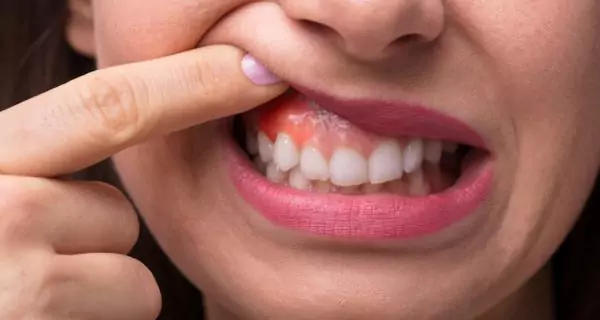
Both are linked by chronic inflammation and can worsen the other.
- Shared inflammation: Arthritis and gum disease involve the same immune responses, causing swelling and tissue damage.
- Bacteria link: Some mouth bacteria, like Porphyromonas gingivalis, can worsen rheumatoid arthritis by increasing harmful inflammation in the body.
- Worsening symptoms: People with arthritis often have more severe gum problems, and gum disease can make arthritis symptoms worse, too.
- Treating one helps the other: Studies show that treating gum disease can reduce arthritis flare-ups and overall inflammation.
What are the signs of gum disease in people with arthritis?
Look out for:
- red, swollen, or bleeding gums
- bad breath that doesn’t go away
- loose teeth or gums pulling away from teeth
- pain when chewing or brushing
If you notice these, see your dentist as soon as possible to avoid further complications.
Why does arthritis cause more cavities?

Arthritis increases your risk of cavities for two main reasons: dry mouth and difficulty brushing and flossing.
- Many arthritis medicines, like steroids or immunosuppressants, can make your mouth dry. Saliva protects your teeth by washing away food and bacteria. When you don’t have enough saliva:
- food sticks to your teeth
- bacteria grow faster
- acids attack your enamel
- If your hands or wrists hurt, brushing and flossing are harder. This means more plaque stays on your teeth, leading to cavities.
What are cavities?
Cavities are small holes in your teeth. They happen when bacteria eat the sugar in food and produce acids that damage your enamel.
Some signs of cavities are:
- toothache or pain when eating sweets
- sensitivity to hot, cold, or sweet foods
- visible holes or dark spots on your teeth
Arthritis can increase your risk of cavities because of dry mouth and cleaning difficulties. But with good habits and help from your dentist, you can keep your teeth healthy.
What can you do to care for your teeth if you have arthritis?

Use the right tools, keep your mouth clean, and visit your dentist regularly. Let’s see each one.
How can brushing and flossing be made easier?
When your hands or wrists hurt, simple tasks like brushing or flossing can feel impossible. These tools can help:
- Electric toothbrushes: Choose one with a large, easy-to-hold handle and soft bristles. This toothbrush can help you to clean better with less effort.
- Floss holder or water flossers: They make cleaning between your teeth easier, especially if your fingers are stiff.
- Rubber grips and toothpaste squeezers: Rubber grips slide onto your toothbrush or floss handle to make holding them easier; and toothpaste squeezers help you get toothpaste out without pain.
How can you keep your mouth clean every day?
Try to establish a routine, and to do as much as you can.
- Brush your teeth twice a day.
- Floss daily, using floss holders or water flossers if needed.
- Rinse with antibacterial or fluoride mouthwash to protect against cavities and gum disease.
- Stay hydrated to reduce dry mouth and keep your mouth comfortable.
What should you eat to protect your teeth and joints?
Eating well supports both your mouth and your joints. Try to:
- Eat foods rich in Omega-3, like fish or chia seeds
- Avoid too much sugar, as it causes cavities
Being consistent with your routine is important because plaque builds up fast. Missing brushing or flossing for just a few days can lead to gum disease. For people with arthritis, these problems can get worse quickly. Keeping a daily routine helps protect your teeth and gums.
How can dentists help if you have arthritis?

Dentist adapt care and work with your doctor to keep you healthy. They can:
- Recommend more frequent checkups and cleanings
- Suggest tools and show you how to use them easily
- Coordinate with your rheumatologist to understand your medications and inflammation levels
- Provide treatments like deep cleanings, fluoride rinses, or special mouthwashes
Seeing your dentist regularly helps catch problems early and keeps your mouth healthy, even with the challenges of arthritis.
When should you visit the dentist if you have arthritis?
Visit your dentist at least every 6 months for regular cleanings and checkups. But you should see your dentist right away if you notice:
- bleeding gums
- pain when brushing or chewing
- bad breath that doesn’t go away
- loose teeth
If brushing and flossing become too painful or hard to do, talk to your dentist. They can suggest other tools or treatments to help.
Why do doctors and dentists need to work together?
Because inflammation affects your whole body. Dental problems can make arthritis worse, and arthritis can make dental problems worse as well.
When your dentist and doctor work together, they can:
- help control your inflammation better
- reduce pain and swelling
- improve your overall health
Using adaptive tools, keeping a daily cleaning routine, eating well, and working with your dentist and doctor can protect your mouth and help manage your arthritis.
Conclusion
Arthritis doesn’t just hurt your joints. It also causes problems in your mouth. Inflammation, dry mouth, plus pain in your hands or jaw can make it hard to care for your teeth and gums.
But you can manage it. With the right tools, daily care, and help from your dentist, you can keep your smile healthy and feel better overall.
Frequently Asked Questions (FAQ)
Voice Search Snippets (Q&A)
References
1. Arthritis Center. (2016, January 11). Dental tips for the rheumatoid arthritis patient. Johns Hopkins Arthritis Center. https://www.hopkinsarthritis.org/arthritis-news/5-dental-tips-for-the-ra-patient/
2. Chang, Y., Chung, M. K., Park, J., & Song, T. (2023). Association of Oral Health with Risk of Rheumatoid Arthritis: A Nationwide Cohort Study. Journal of Personalized Medicine, 13(2), 340. https://www.mdpi.com/2075-4426/13/2/340
3. CHP. (2024, March 6). How arthritis affects dental health. Community Health Partners. https://chphealthmt.org/news/how-arthritis-can-affect-your-dental-health?locale=en
4. Mehdipour, A., Masoumi, M., Shajari, P., Aghaali, M., Mousavi, H., Saleh, A., & Ansarian, M. (2022). Oral health-related quality of life and dental caries in rheumatoid arthritis patients: a cross-sectional observational study. Journal of Medicine and Life, 15(6), 854–859. https://medandlife.org/wp-content/uploads/JMedLife-15-854.pdf
5. Zimlich, R. (2023, May 19). Rheumatoid arthritis and your teeth: what to know. Healthline. https://www.healthline.com/health/rheumatoid-arthritis/rheumatoid-arthritis-and-teeth







